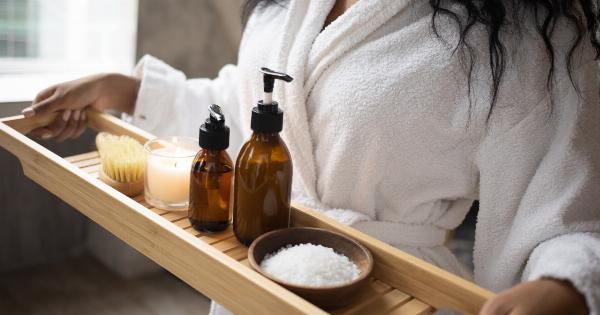Going on vacation is always a delightful experience. It is a time to unwind and relax, explore new places, and create beautiful memories. However, after a period of rest and indulgence, it is not uncommon to feel a bit sore and out of shape post-vacation.
This post-vacation soreness can affect anyone, regardless of their fitness level or age. In this article, we will discuss what to expect when it comes to post-vacation soreness and provide some tips on how to manage it effectively.
Why do we experience post-vacation soreness?
When we are on vacation, our daily routine often goes through a drastic change. We may indulge in different types of food, spend long hours sitting in planes or cars, and engage in more rigorous physical activities than we are accustomed to.
All of these factors can lead to muscle soreness and stiffness.
Here are some reasons why you may experience post-vacation soreness:.
1. Inactivity:
While on vacation, it is easy to spend long periods being sedentary, whether it is lounging by the beach or sitting in a tour bus. Lack of movement can lead to muscle stiffness and pain, especially in areas like the neck, back, and legs.
2. Overexertion:
On the flip side, some vacations involve physically demanding activities like hiking, swimming, or skiing. Engaging in these activities without proper conditioning or warm-up can strain your muscles and cause soreness.
3. Change in sleeping arrangements:
When we travel, we often sleep in different beds or use unfamiliar pillows. These sudden changes in our sleeping arrangements can lead to poor sleep quality and aching muscles.
4. Jet lag:
If you are traveling across different time zones, jet lag can significantly impact your sleep, energy levels, and overall well-being. Fatigue and muscle soreness are common symptoms of jet lag.
5. Dehydration:
Traveling can disrupt our normal hydration routine, especially if we are not mindful of our water intake. Dehydration can lead to muscle cramps and stiffness.
How to manage post-vacation soreness?
The good news is that there are several ways to manage post-vacation soreness effectively. Follow these tips to alleviate discomfort and get back to your normal self:.
1. Gentle stretching and exercise:
Engage in gentle stretching exercises to improve blood circulation and relieve muscle soreness. Take short walks, go swimming, or practice yoga to slowly regain your strength and flexibility.
2. Stay hydrated:
Drink plenty of water and fluids before, during, and after your vacation. Hydration is essential for muscle recovery and overall well-being. Avoid excessive caffeine and alcohol consumption as these can contribute to dehydration.
3. Ease back into your routine:
Avoid diving headfirst into a demanding exercise routine or returning to work with a hectic schedule immediately after vacation. Ease back into your regular activities gradually to give your body time to readjust.
4. Apply heat or cold therapy:
If you experience localized muscle soreness, applying heat or cold therapy can provide immediate relief. Use a heating pad or take a warm bath to relax your muscles. Alternatively, try using an ice pack or taking a cold shower to numb the pain.
5. Massage therapy:
Consider booking a massage session to alleviate muscle tension and soreness. A professional massage therapist can target specific areas of discomfort and provide relief through various techniques.
6. Take over-the-counter pain relievers:
If the soreness is persistent and affecting your daily activities, you may consider taking over-the-counter pain relievers such as ibuprofen or acetaminophen.
However, always follow the recommended dosage and consult with a healthcare professional if needed.
7. Prioritize sleep:
Ensure you are getting enough restful sleep to allow your body to recover. Stick to a regular sleep schedule and create a relaxing bedtime routine. Avoid using electronic devices or engaging in stimulating activities before bedtime.
8. Practice self-care:
Take care of your body by practicing self-care activities such as taking hot baths, applying soothing muscle creams or ointments, and indulging in healthy meals and snacks.
9. Seek professional help:
If the soreness persists for an extended period or becomes unbearable, it is advisable to seek professional help.
A healthcare provider or physical therapist can assess your condition and provide personalized recommendations for managing your post-vacation soreness.
10. Preventative measures:
Prevention is always better than cure. Take preventative measures to minimize the severity of post-vacation soreness for future trips. Stay active before your vacation, engage in regular exercise and stretching, and maintain a healthy diet.
By following these tips, you can effectively manage post-vacation soreness and transition back to your daily routine smoothly. Remember, it is normal to experience some discomfort after a period of relaxation and indulgence.
The key is to listen to your body, be patient, and take steps to promote recovery.

























